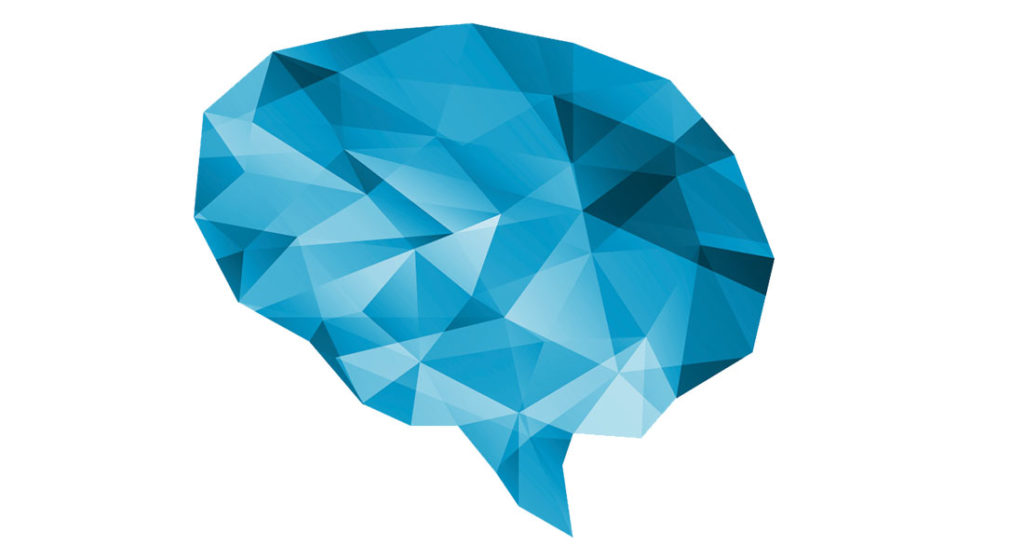Onset of Mental Illness: First Signs and Symptoms in Young Adults
You may think that once you finish high school, you’re finished growing up. Physically, you’re probably as tall as you will ever get. You may have reached your final shoe size.
Whether you head off to college or out to make your own way in the world, you will likely gain a great deal of independence at this point in life, moving away from your parents and beginning to take care of yourself. While you still have a lot to learn, you probably feel like the development process is over.
Mentally, however, as a young adult, you’re still not fully grown. Young adults, aged 18 to 29, are still experiencing cognitive development, and this is one of the reasons why mental illness can present at this time of life.

Young adults, ages 18 to 29, are still experiencing cognitive development.
Brain Development for Young Adults
Most people are familiar with the developmental stage of adolescence. The independence of relying more on peers than on parents for the first time, the angst of finding one’s own identity while belonging to a social group, and the inhibitions and poor decision-making are legendary parts of the teen years.
What most people don’t realize, however, is that brain development does not stop at age 18. The part of the brain that controls impulses and plans and organizes behavior to reach a goal will continue to develop into the mid-20s. For most people, at age 18, this growth process is only half over.
The brains of adolescents have heightened reward systems that also remain active several years beyond their eighteenth birthday. This increased sensitivity is what drives adolescents to be highly emotional and incredibly sensitive to peer pressure. Throughout their 20s, they continue to seek out new, potentially pleasurable experiences sometimes without regard for the risks.
The changes that take place in the brain during the early 20s affect how new experiences and new pieces of information are synthesized. This brain growth tends to coincide with a loosening of parental controls, and possibly the freedom of attending college or living independently. The types of experiences, both good and bad, a young adult encounters can significantly shape brain development in this stage, potentially presenting as mental illness.

The changes that take place in the brain during the early 20s affect how new experiences and new pieces of information are synthesized.
First Signs of Mental Illness in Young Adults
Mental illness encompasses a wide variety of disorders that exist on a severity continuum. Some can be temporary responses to crises or other experiences, while others are chronic conditions. Mental illnesses have various causes and triggers. The stigma of mental illness in this country is fading as more and more people discover they have some sort of mental illness, and that their lives can be improved by treatment.
Common Mental Health Disorders
Mental illnesses are generally grouped into these categories:
- Eating Disorders (anorexia, bulemia, binge eating)
- Personality Disorders (antisocial, paranoia, borderline personality disorder)
- Mood Disorders (major depressive disorder, bipolar disorders, cyclothymia)
- Thought Disorders (schizophrenia, schizoaffective disorder, delusional)
- Anxiety Disorders (social anxiety, phobias, generalized anxiety)
- PTSD and trauma-related disorders
- Developmental Disorders (autism spectrum disorders, ADHD)
While some of these mental illnesses can present and be diagnosed in childhood, many cannot be diagnosed until adolescence or even later. Personality disorders, for example, can not be confirmed until the personality is more fully formed. Addiction does not usually develop in childhood, because adults control the substances children have access to. Eating disorders also tend to develop during adolescence or later, because that’s when you gain full control of your eating habits.

Young adults are at a particularly vulnerable time in their development, which might explain why 1 of every 5 is affected by mental health disorders.
Young adults are at a particularly vulnerable time in their development, which might explain why one out of every five is affected by mental health disorders. Psychiatric disorders that commonly present in young adults include, among others:
Young adults are completing a transition in their mental state that is marked by heightened emotions and turmoil. When you add the sort of changes they are likely going through in their lives at the same time, it’s easy to see why mental illness may present at this time.
In their early 20s, most people leave their parents’ house for the first time to go to college or get their first apartment. They are under increased pressure to succeed academically, financially, and socially. Some move back home after college, while others move away from families and support systems to begin new jobs. All of this change, while exciting, is definitely stressful. Given the right conditions, stress can trigger mental illness.
Mental Illness in College Students
College brings with it a unique brand of stress. There are academic challenges, increased responsibilities, and new living arrangements. That’s a lot of transition for some people to manage.
According to a recent report on mental health problems in college students, over 20% of college students in 2013 were diagnosed or treated for mental illness. The number of college students suffering from mental illness is believed to be much higher since approximately 40% of those affected do not get treatment. At least 80% of college students surveyed felt overwhelmed by their responsibilities, and for 50%, their anxiety caused them to struggle academically.

20% of college students in 2013 were diagnosed or treated for mental illness
The directors of college campus counseling centers confirm that significant mental health issues are growing among college students. Campus counselors suggest that the number of students they see with severe mental illness increases noticeably each year.
In a recent survey of graduate students at one California university, 45% reported experiencing emotional and stress-related problems significant enough to affect their academic work. An annual survey conducted on a larger sampling across the country revealed that 30% of college freshmen frequently feel overwhelmed. The number of female college freshmen experiencing this feeling has almost doubled since 1985.
Studies show that the rates of reported anxiety and depression among college students are up in recent decades. Almost one-third of students report experiencing an anxiety or depression disorder during their college career. In 2013, 27% of male students and 33% of female students reported feeling so depressed that it was hard to function.
Data collected on mental illnesses in college students since the 1980s shows a trending increase in reported levels of stress, anxiety, and depression.
Managing Symptoms of Mental Illness in Young Adults
If you’re a parent, you might tend to feel helpless once your children have moved out or gone off to college. You can no longer protect them from many of the dangers in the world. When it comes to mental illness, though, you can make a big difference by recognizing the signs and knowing when to seek help for your child.
Symptoms of mental illness in young adults include:
- Anger
- Isolation, or being “a loner”
- Antisocial behavior
- Delusions
- Confused thinking
- Mood swings
- Hallucinations
- Suicidal thoughts
- Excessive anxiety
- Unexplained physical ailments
- Changes in sleep patterns (staying up all night or sleeping all day)
- Changes in appetite or diet
- Impulsive behavior, particularly in terms of travel, spending money, or sexual relationships
A lot of these signs may seem like normal parts of your teen or young adult’s personality. Often, young adults exhibit these behaviors as a natural part of the transition their brains and lives are going through. As a parent, you know your child better than anyone. If you notice him or her exhibiting behaviors that are unusual, it may be worth a conversation.
Only a qualified healthcare provider can truly diagnose a mental illness, and you may be able to identify some warning signs and involve a professional sooner rather than later. One of the problems with detecting a mental issue is that the person experiencing it may not notice the warning signs themselves, or they may want to hide them rather than face the problem and get help.
Ignoring the signs of mental illness is one of the worst things you can do. If your college-aged child is exhibiting unusual behavior, do not hesitate to talk with them about it. There’s no shame in suspecting the behavior could be a sign of a mental illness. Getting professional advice will calm your fears and help you develop a treatment strategy if one is needed.
Mental illness in young adults can often be treated more effectively when it’s identified early. With some professional guidance, conditions like depression and anxiety that are triggered by the increased stress of college life can be managed. You need a professional to diagnose the condition and prepare a strategy for treatment. If there is a more serious underlying condition, a mental health professional can help you deal with that, as well.
Treatment Options for Young Adults With Mental Illness
Many people are afraid that there is no treatment for whatever mental illness they may have, so they try to hide the symptoms and pretend nothing is wrong. Unfortunately, a lot of misinformation about mental illness is distributed through the media.
In reality, mental illnesses can be treated or managed with evidence-based methods. A combination of behavioral therapies and medication can help people with a variety of mental disorders live happy lives as productive members of society. You probably have no idea which of the people around you is recovering from or living with a mental illness.
Since young adults are still developing parts of their brains, however, diagnosing mental illness early, and treating it effectively, can improve the chances of a good outcome. Diseases like depression can compound over time, and disorders don’t usually resolve on their own once they start. Professional help is needed.
Treatment options for these and other mental illnesses are more abundant today than they were decades ago. There is a range of treatment modalities that can be used alone or in combination to address mental illnesses of all kinds. Treatment options range from outpatient therapy for people with some skills already in place to manage their symptoms, to inpatient hospitalization for individuals who are in crisis.
An option in the middle is residential psychiatric treatment. A typical stay in an acute inpatient psychiatric facility or hospital is typically only a few weeks. After hospitalization, residential treatment is a good option for young adults who still need time and support to adjust to new medications, learn about their symptoms, and practice skills to effectively cope with stress and live independently. A young adult might participate in a residential mental health program for a few weeks or months. After residential treatment, young adults can continue with their lives, maintaining their mental health through outpatient therapy and self-care.
Some residential treatment programs offer, a holistic approach in addition to traditional medication management and behavior therapy. Not only can the program address your psychiatric issues through traditional medical approaches, but it can also use diet, exercise, recreation, and the arts to wrap around all aspects of your life. Approaching treatment for mental illness in a holistic way has shown better outcomes.
In a residential care facility, you get to step away from your regular life for a while. This gives you a chance to heal and grow while suspending your outside responsibilities—until you’re ready to do so. In many cases, young adults develop mental illnesses as a result of their environment. Taking them out of that environment makes it easier for them to heal, and then they learn strategies for coping before transitioning back to their regular lives.
In a residential treatment facility, you get to work with professionals and other people who are struggling with the same types of issues you are. There is comfort in knowing that you’re not the only one who developed a mental illness as a young adult. Living and counseling with others actually make the rehabilitation program stronger, and the camaraderie of people who know what you’re going through is very supportive.
Results of Treatment
Most young adults with a mental illness can learn to successfully manage their symptoms and enjoy meaningful lives in their communities. Many young adults with a mental illness can finish college, enter the workforce, or contribute to causes they care about through volunteering. Effective treatment can help improve relationships young adults have with their parents, siblings, and friends.
Receiving a mental health diagnosis is difficult, and it doesn’t mean you have to give up on your dreams or plans for your future. With the right treatment and support, young adults can enjoy healthy, happy futures.
Protecting Your Health as a Caregiver
When someone in your family, or close to you, suffers from a mental illness, everyone is affected. Sometimes it feels like mental illness is happening to you in addition to your loved one. In addition to trying to get your child the help he needs, you may also feel some guilt and shame. This can be an emotionally overwhelming experience.
Whether the mental illness your college student is experiencing is temporary or chronic, the initial treatment phase will probably be longer than you want it to be. It’s important to be patient and develop a strategy to help you cope, as well.
Here are some things to keep in mind when supporting a young adult with mental illness:
- Build a support network for yourself. Remember that this is happening to you too. Identify people you can lean on when you feel overwhelmed. Find people who are going through a similar situation who can understand how you feel. Don’t try to be the sole support for your child. Build a team instead.
- Don’t ignore the warning signs. Mental illness does not usually go away on its own. It’s not a phase your child will outgrow. Pay attention to the warning signs and ask questions. Talk with your child about their recent changes in behavior. Use your parental intuition to recognize whether they are in trouble or not.
- Take a break. Mental illness can be all-consuming. Suddenly you notice that every conversation you have, even most of the thoughts you have, are all about the disease and treatment. It’s important to set aside time each day to do something that’s not related to mental illness. Go for a walk, participate in recreational activities, or just have lunch with a friend. Schedule a break for yourself.
- Get counseling. If you are supporting someone who’s struggling with mental illness, you may need counseling yourself. Being the support person can be just as taxing as being the one with the disease. Get a counselor who is familiar with the particular situation you are dealing with, and schedule your own sessions regularly.
- Develop a strategy for handling unusual behavior. Understand your limitations for dealing with mental illness. As a parent, you can offer love and support, but you cannot fix the problem. You are also not a trained counselor. Work with your child’s counselor to develop a strategy for dealing with their behavior. If they are experiencing hallucinations or exhibiting impulsive behavior, have a plan to deal with these behaviors when they happen. A strategy will make these types of occurrences less stressful for everyone.
Most parents mark the milestone of getting through the “terrible twos” as a win. Then, it’s on to the rebellious teenage years with unique haircuts and interesting friends. By the time your child reaches high school graduation, you consider your job as a parent mostly complete.
Many young adults, however, need continued parenting through this last phase of development. While they embrace their new freedoms and responsibilities, keep an eye on them. You can still provide the guidance necessary to help them recognize and deal with the onset of mental illness.
To learn more about residential treatment options for mental illness, and to explore what a holistic recovery philosophy looks like, contact Skyland Trail today.
